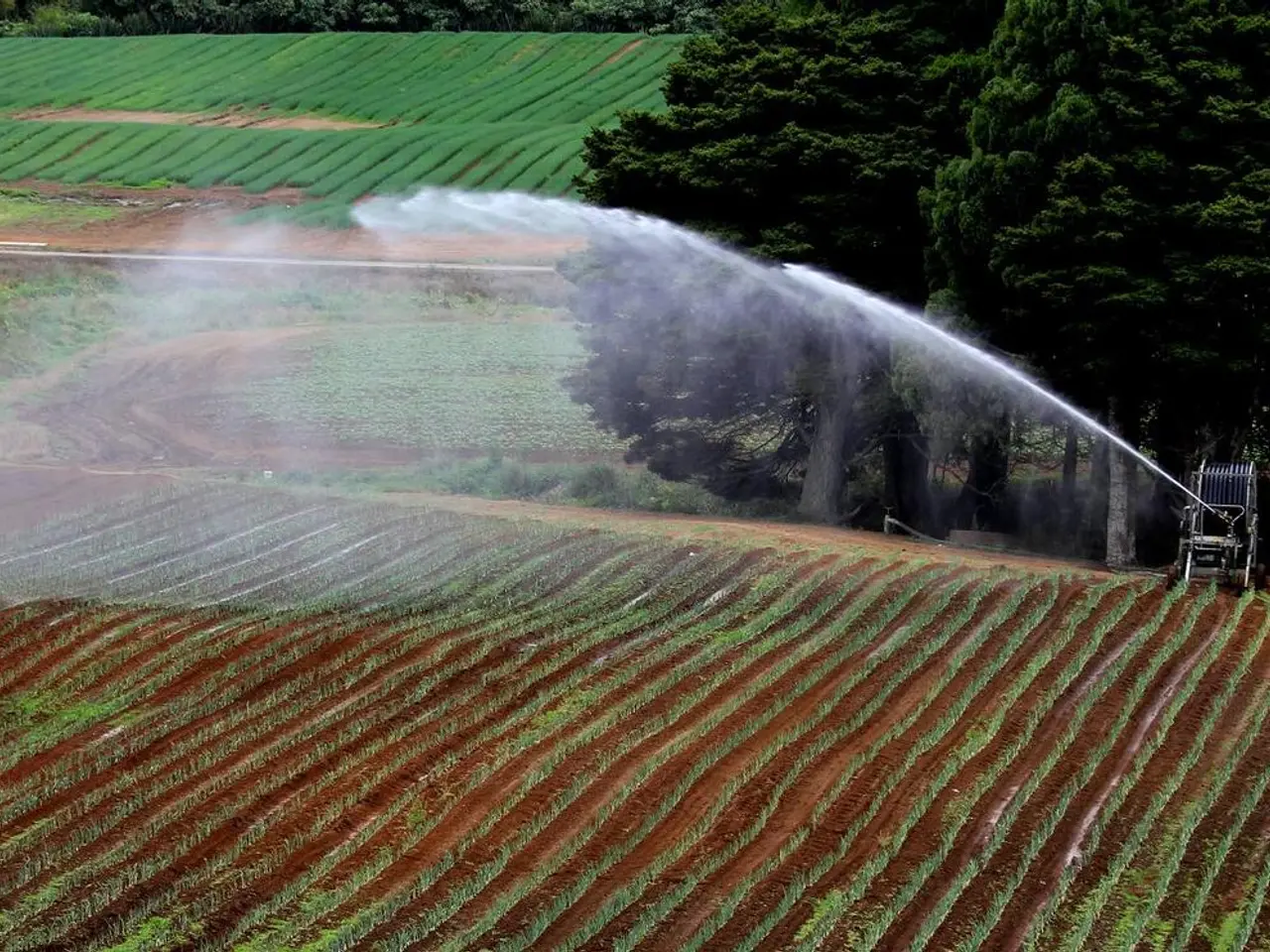Rabobank supports Musim Mas' initial loan tied to sustainability standards, without confirmation from external auditors
Rabobank, a Dutch banking giant, has approved a EUR 150 million sustainability-linked loan (SLL) for palm oil giant Musim Mas. This move comes as the palm oil industry faces increasing scrutiny over its environmental and social impacts.
The loan requires Musim Mas to ensure that independent smallholders it contracts are certified by the Roundtable on Sustainable Palm Oil (RSPO). However, the question of transparency and monitoring in SLLs remains a concern, especially in the Asian region.
According to a Singapore-based executive, SLLs often lack transparency and a strong monitoring framework. To address this, best practices for external review and monitoring in SLLs include several key elements.
- Materiality and Ambition of KPIs: The sustainability Key Performance Indicators (KPIs) linked to the loan should be material to the borrower’s core economic activities and ambitious enough to drive meaningful improvements in sustainability performance.
- Independent External Review (Second Party Opinion): It is strongly recommended that the borrower’s sustainability KPIs and targets be reviewed and confirmed by recognized external providers. This review assesses alignment with recognized frameworks like the LMA Sustainability-Linked Loan Principles and evaluates the ambition and relevance of the targets.
- Transparent and Regular Reporting: Borrowers should report at least annually on their progress against the agreed KPIs. These reports should be externally verified with limited assurance by independent auditors or verifiers to ensure accuracy and credibility.
- Ongoing Monitoring and Engagement: Lenders and external reviewers should conduct event-driven screening and regular engagement with the borrower post-financing to monitor compliance and progress.
- Risk Mitigation and Transparency: The external review process should clearly define eligibility criteria, risk mitigation measures, and provide transparency on project selection, monitoring, and reporting procedures.
- Alignment with Industry Standards and Frameworks: The review should benchmark against key voluntary guidelines and market standards.
For Musim Mas' specific case, these best practices mean using sector-specific KPIs linked to palm oil sustainability, engaging a reputable externally independent party for a full Second Party Opinion (SPO) or similar external review, ensuring transparent, timely, and external verification of Musim Mas’ KPI progress reports, and implementing ongoing lender monitoring.
Notably, Rabobank has stated that there will be two post-issuance external reviewers: Control Union and another yet-to-be-confirmed firm. However, Musim Mas has not specified who will be the third-party verifiers for the loan's progress.
The executive also mentioned that any clients opting for a sleeping SLL, like the one given to Musim Mas, "should have a documented history of ESG strategy." It's worth noting that the loan was converted from an existing revolving credit facility using a "sleeping SLL," a loan agreement where the borrower is allowed to delay the setting of KPIs until after the deal's closing date.
Despite the concerns about transparency and regulations, SLL volumes have declined from their 2021 peak, but the loan instrument continues to grow in Asia and has contributed to the sustainable finance targets of many regional banks. The United Kingdom's Financial Conduct Authority (FCA) currently has no plans to introduce regulatory standards for the SLL market, but has not ruled out reconsidering this stance "if the market needs it."
As the palm oil industry continues to evolve, the need for transparency and robust monitoring in SLLs remains crucial. By adhering to best practices and ensuring a comprehensive external review process, banks can help drive meaningful improvements in sustainability performance and support the transition to more sustainable methods in the palm oil supply chain.
- The palm oil industry, under scrutiny for its environmental and social impacts, has seen Rabobank approve a EUR 150 million sustainability-linked loan (SLL) for Musim Mas.
- Musim Mas must ensure that independent smallholders they contract are certified by the Roundtable on Sustainable Palm Oil (RSPO), yet concerns remain about transparency and monitoring in SLLs, particularly in the Asian region.
- To tackle transparency issues, best practices for SLLs recommend the use of material and ambitious KPIs linked to the borrower's core economic activities, an independent external review, transparent and regular reporting, ongoing monitoring, alignment with industry standards, and risk mitigation measures.
- For Musim Mas' SLL, this means adopting sector-specific KPIs related to palm oil sustainability, engaging an external and independent party for a detailed review, ensuring transparent, timely, and external verification of Musim Mas' KPI progress reports, and continuous lender monitoring.
- Rabobank has appointed Control Union and another firm for post-issuance external review, but Musim Mas has yet to disclose who will verify the loan's progress.
- Clients opting for a sleeping SLL like Musim Mas, which allows delaying the setting of KPIs until after the deal's closing date, should have a documented history of ESG strategy.
- Despite transparency concerns and the lack of regulatory standards, SLL volumes continue to grow in Asia and contribute to sustainable finance targets of many regional banks, with the United Kingdom's Financial Conduct Authority (FCA) considering introducing standards if necessary.




